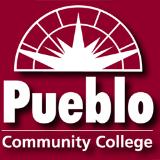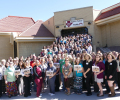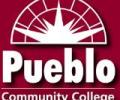The reality, however, is that there are many social cognitive factors that impair this ideal. In the Pueblo Community College service area, we see a significant number of first generation students coming from low socioeconomic status and with a plethora of family issues needing perceived immediate attention.
The question remains — is it academic preparedness or college readiness that administration, faculty, and staff must address? This may seem like a semantic argument, but it is not. An important distinction exists between the terms of college readiness and academic preparedness. This distinction is more than mere words; it reflects real differences in the skills that students possess. If we only focus on academic preparedness, then we’ll likely undervalue and under-invest in critical elements of college readiness. Hence, at Pueblo Community College, the answer to the above question is that we must address both.
Without a doubt, access, affordability, opportunity, and degree completion all lead to student success. This is the mantra of most community colleges, and it is articulated in thousands of mission statements and uttered endlessly from administrators and professors alike.
But PCC is not just a community college; it is your community college. We believe in our communities, we are invested in student success, and we are constantly looking for opportunities to increase student engagement and retention.
Academic preparedness is a significant challenge for at least 25 percent of the students who enroll at PCC. Theses student lack proficiency in the academic knowledge and skill levels of reading and mathematics necessary to be qualified for placement into a job training program (for the workplace context) or into a credit-bearing, entry-level general education course.
With a majority of PCC students in need of remediation, academic preparedness has taken on a whole new look at PCC. The iGrad program that we developed a year ago provides a path that allows students to complete their remedial work in any given subject within one semester, with the option of a two-semester math sequence for students preparing for fields requiring algebraic literacy. Acceleration is accomplished through more accurate student assessments, offering one-credit co-requisites that support college-level work and pairing a redesigned remedial course with a college- level course.
College readiness (the behavioral aspects of individual performance related to success) poses yet a different set of challenges for another 34 percent of our students who are first-generation. Pueblo Community College recognizes that we must embrace our students in an environment where students feel valued and safe. Where better than PCC to seek the answers of what is expected of a college student?
We are committed to helping students remove the barriers that inhibit academic success. Experiential learning labs, small class sizes, hybrid course options, student mentoring, intrusive advising, tutoring, career counseling, veteran support, leadership opportunities, and a diverse variety of student activities are but a few of the many student success services available at Pueblo Community College.
By addressing both the academic preparedness and college readiness issues of our students while offering more than 75 certificate and degree program options, Pueblo Community College makes it possible for students to expect more and get more from their education. We encourage them to enroll now for spring classes and begin their journey to success!
Patty Erjavec is president of Pueblo Community College, which includes its main campus in Pueblo, its Fremont Campus in Cañon City, and its Southwest Colorado Community College sites in Durango and Mancos.







